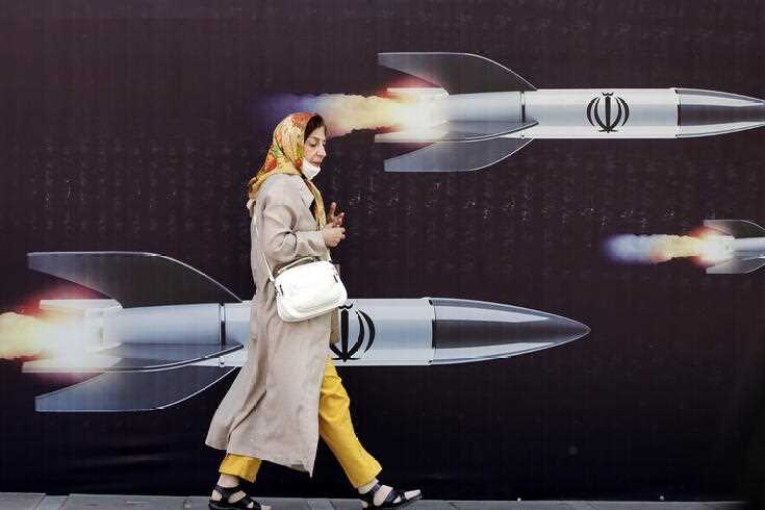Girl, 15, among more than 300 protesters arrested by Hong Kong police

A teenage girl waving a Hong Kong independence flag is among some 370 people who have been arrested as police fired water cannon and tear gas during protests against a new national security law.
Thousands took to the streets in defiance of the sweeping security legislation which saw demonstrators being pinned to the ground and pepper-ball rounds fired at perceived hecklers.
Media outlets were not immune to the hardline anti-riot tactics against protesters, with police using pepper spray and water cannon to target journalists.
Tweet from @chinchiwong
Of the 370 people who were arrested for taking part in “illegal assemblies” and other violations, 10 were for offences related to the new security law, Hong Kong police said.
People merely wielding signs or flags advocating for Hong Kong’s independence were targeted by the new law introduced by China that critics say is aimed at snuffing out dissent.
A 15-year-old girl who was waving a Hong Kong independence flag was among those handcuffed and taken away by riot police.
The first person who they detained for holding a “Hong Kong independence” flag was a man whom police said was arrested due to the flag which was in his possession.
Tweet from @JoshuaPotash
Police cited the law in confronting the thousands of people who spilled into the streets chanting “resist till the end” and “Hong Kong independence”.
“You are displaying flags or banners/chanting slogans/or conducting yourselves with an intent such as secession or subversion, which may constitute offences under the … national security law,” police said in a message displayed on a purple banner.
“I’m scared of going to jail but for justice I have to come out today, I have to stand up,” said one 35-year-old man, as the law pushes China’s freest city on to a more authoritarian path.
Under the legislation, authorities can punish crimes of secession, subversion, terrorism and collusion with foreign forces with up to life in prison, and will have mainland security agencies operate in Hong Kong for the first time and allow for extradition to the mainland for trial.

The new national security law, that Beijing has tailor-made for Hong Kong, prohibits acts of secession, subversion, terrorism and collusion with foreign forces. Photo: AAP
China’s parliament adopted the law in response to protests last year triggered by fears that authorities in Beijing were stifling the city’s freedoms that had been guaranteed by a “one country, two systems” formula agreed when it returned to Chinese rule.
Authorities in Beijing and Hong Kong have repeatedly said the legislation is aimed at a few “troublemakers” and will not affect rights and freedoms, nor investor interests.
But critics fear it is aimed ending the pro-democracy opposition and will crush the freedoms that are seen as key to Hong Kong’s success as a financial centre.
Tweet from @RT_com
The United States government and some of its allies have criticised the legislation.
The British government said it would stand by its word and offer all those in Hong Kong with British National Overseas status a “bespoke” immigration route.
Britain and Canada also updated their travel advice for Hong Kong, saying there was an increased risk of detention.
British Foreign Secretary Dominic Raab described Wednesday’s protests as heartbreaking and reprimanded HSBC and other banks for supporting the new law, saying the rights of Hong Kong should not be sacrificed for bankers’ bonuses.
-with AAP








